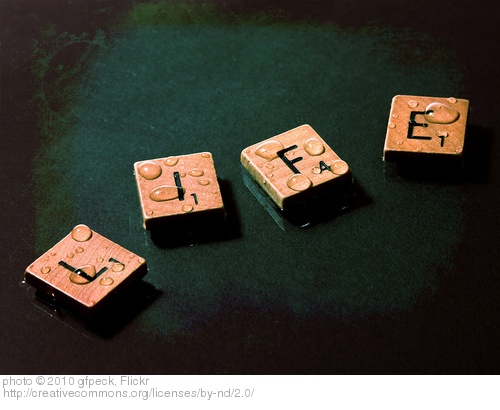Stop smoking. Start exercising. Stop eating fast food. Start eating broccoli. Stop crossing without looking both ways. Start walking instead of driving. Stop adding salt. Start adding vitamins. Stop drinking alcohol. Start drinking red wine.
The list of advice regarding how to live a longer life is endless and often contradictory. Yet we absorb these recommendations and then regurgitate them with amazing confidence, certain that whatever tidbit heard last is the surefire guarantor of a long life.
But adding a day, or a month, or a year, or even a decade…is that the point? Is that really all that we’re concerned with?
* * * * *
“And who of you by being worried can add a single hour to his life?” Jesus, from Matthew 6:27
* * * * *
We are all well-informed of the disastrous things that worry causes: stress, heart disease, country music, high blood pressure, wrinkles, and even Bobby McFerrin songs that inexplicably reach #1. Many times we approach this question Jesus asked about worry the same way we approach the latest fad for reaching 100 years of age.
Worry won’t add time to your life, so don’t worry and you’ll live longer, we reason.
But Jesus died around the age of 33. Half of his original disciples, according to traditional and historical records, were put to death, prematurely ending their lives because they followed him and spread his message. And based on many of the things that Jesus said in the Gospels, I don’t think that living a long life topped his list of important things to do before you die.
* * * * *
“And who of you by being worried can add a single hour to his life?” Matthew 6:27
* * * * *
What if Jesus wasn’t talking about adding hours on to the END of our lives, but inserting quality hours INTO our lives?
What if he knew that worrying about income would keep us from doing the thing we loved? What if he knew that worrying about rejection would keep us from love? What if he knew that worrying about failure would keep us from trying? What if he knew that worrying about the future would keep us from living, really living, in the present?
What are you worrying about? How is it taking away from your life?
* * * * *
Other posts about questions Jesus asked:
“If You Are Kind Only to Your Friends…”
“What Are You Looking For?”


I like your perspective of quality hours. I never looked at it that way. I have to say, it makes sense. Live your life to the fullest and it won’t matter if you live 30 or 80 years. You’ll have lived a great life.
I had to LOL at the thought that worry led to the creation of country music. And I needed this post today – worry was tangling at my heels.
Thanks for reading, Michelle.
Good thoughts, Shawn. However, it brings to mind the conditional promise to children of “long life” if they obey/respect their parents. Arguments can be made for the references in the OT law being replaced by post-Cross grace … but in Ephesians 5 Paul tells children to honor their parents so “that it may go well with you and that you may live long in the land.”
I agree with you that quality > quantity, but I’m not sure what to do with this passage.
Good point, Jeremy. Here are my thoughts on this. In Ephesians, Paul is referring back to the commandment in Exodus, as you mentioned. The NAS version translates that commandment to say:
“Honor your father and your mother, so that you may live long in the land the LORD your God is giving you.”
To me that doesn’t promise a long life as much it promises a longer period of time in the Promised Land and the blessings of God. It’s always been interesting to me that the same word Honor used in this commandment is also the word Honor used in the verse in which God speaks to Moses: “But the LORD said to Moses and Aaron, ‘Because you did not trust in me enough to honor me as holy in the sight of the Israelites, you will not bring this community into the land I give them.'”
I think this a tangible example of dishonoring the Father leading, not to a shorter life, but to a life that did not take place in the Promised Land.
Sorry, that’s the NIV.
I like that – a longer period of blessing. That holds true to the quality over quantity idea. I think so much gets lost in translation between the Hebrew analogies, the Greek language, and then finally into our boring English words. This probably a prime example.
My ESV reads “..that you may live long in the land.” Interesting case study.
PS – loving “My Amish Roots” by the way. Fascinating.
Very true about the translation issue. I hope I don’t come across as having the sole meaning on this one, and I’m glad you brought up the point you did.
Thanks for liking my book!
You’re a Stoltzfus descent – you can’t NOT be sure of yourself :) Ha – jokes jokes. Not at all, my friend. I’m glad we can have multi-faceted conversations.